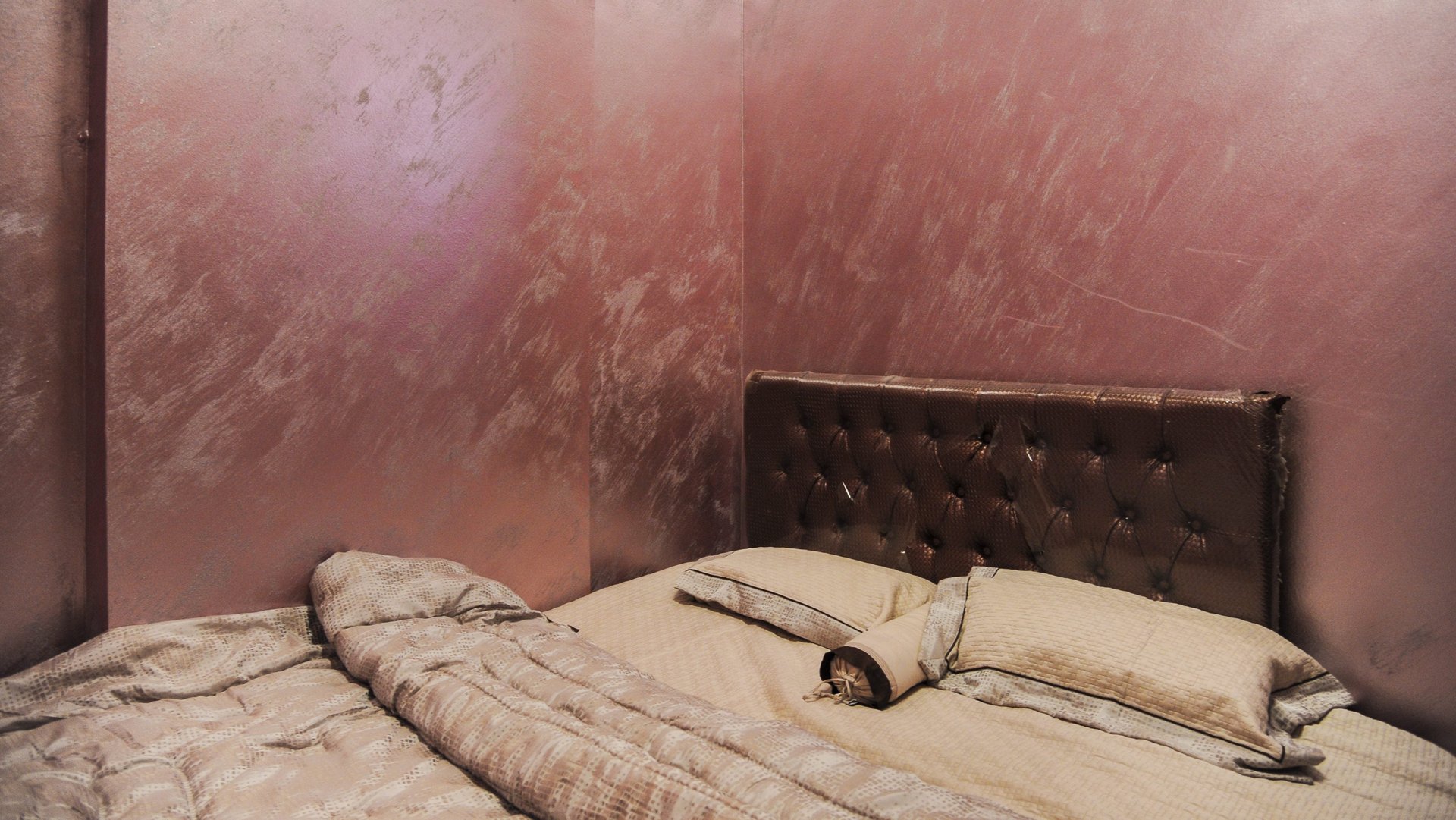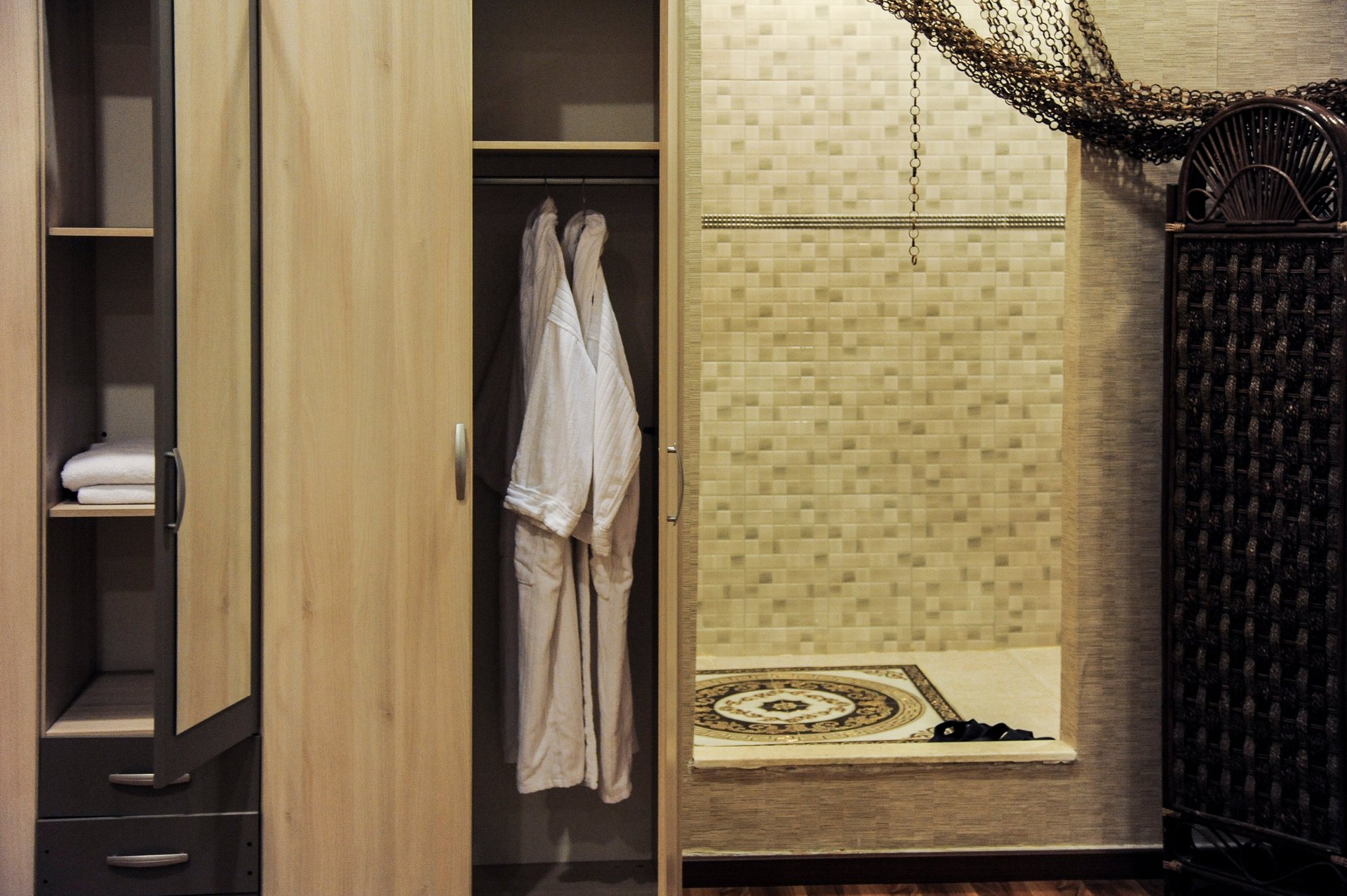Saudi Arabia is rehabilitating jihadis in a lavish prison
In a kingdom where torture and execution define the justice system, some inmates are part of a perk-filled experiment. A room with shimmering pink walls, a double bed and a mini-bar is an important feature of a Saudi prison designed to de-radicalize jihadis.


In a kingdom where torture and execution define the justice system, some inmates are part of a perk-filled experiment. A room with shimmering pink walls, a double bed and a mini-bar is an important feature of a Saudi prison designed to de-radicalize jihadis.
The space at al-Ha’ir prison in Riyadh is a conjugal-visitation room. Inmates are allowed to have wives visit once a month—and if you have more than one, you get more time surrounded by the shimmering pink walls. Your children can stay at a comfortable boutique-style hotel at the prison, complete with a play area.
These accommodations reflect a Saudi government philosophy: To effectively root out radical ideology, a detainee’s family must be involved. “The idea of a family exerting moral pressure on individuals is very powerful in the way that the whole society is structured politically, socially, and economically,” Bernard Haykel, professor of Near Eastern Studies at Princeton University, tells Quartz.
The glistening marital-meeting space, for instance, is designed as a way to help keep families together. David Degner, an Egypt-based photographer who got a rare look inside the prison in May 2016, says that inmates are even given Viagra before their wives’ visits. Conjugal visitation is a privilege for those who behave well or are not considered dangerous, according to The Washington Post and The New York Times, whose correspondents have visited the facility. There is also a room for banquets, where inmates can get married.
The prison has multiple amenities—inmates have access to a pool, a gym, an indoor soccer field, a lounge space, and an activity area with foosball and table tennis. There’s also an outdoor courtyard with well-groomed grass. The cells themselves are sparse, but, the Post reports, light-filled and clean. The detainees get psychological care, including art therapy, and have a designated prayer room. Religious re-education is crucial.
The complex is part of a network of five facilities that house around 5,000 jihadis in total. It includes a halfway house, whose “graduates” include former US prisoners detained at Guantanamo.
The perks are part of a charm campaign, says Haykel: “If you behave and you give up this thing, you have all these goodies that can come to you.” Behind the offer is a threat: There are other ways you could be treated. Amnesty International offers a stark portrait of the Saudi criminal-justice system in its annual report on human rights around the globe. Authorities frequently jail political prisoners, resort to torture, and apply the death penalty. In 2016, Saudi Arabia executed 47 people convicted of terrorism at once.
Saudi officials have been eager to show the world their approach to jihadi rehabilitation, inviting several Western journalists to visit the facility over the past few years.
Family as part of the solution
Degner, whose work was first published by Wired, says he was told that the prison doesn’t try to change the inmates’ entire belief system. The goal is to ensure that they become non-violent and loyal to the regime—and family plays a critical part.

“The obligations in their culture are much more based on having a family, and being a good member of the community. That’s where you get respect and success, instead of necessarily a job or higher education,” he tells Quartz, interpreting what the authorities told him about their approach.
In the west, Haykel points out, the path to adulthood is based on a distancing from one’s family to achieve autonomy. In Saudi Arabia, where being ostracized from your family means significant economic and social consequences, “you never define yourself in opposition to your family.” The notable exception? When you’re a jihadi who believes your family members are not good enough Muslims.
The government is trying to convey that Islam is really about parental approval and family ties, and encourage the radicalized to return to society, Haykel says. Officials seek to root the jihadi in a sense of familial obligation.
Meanwhile, the government also helps the family of the incarcerated, providing money for rent, food, and schooling and airfare for visits. The government also pays for former inmates’ weddings, furnishes newlyweds’ apartments, Middle East expert Christopher Boucek wrote in a 2008 Carnegie Endowment paper. A detainee attending a family wedding on furlough even gets a $2,600 stipend for a gift. The idea is to make reintegration into the family—and society—easier. On the flip side, the authorities make it clear to families that they are responsible for detainees once they are released, Boucek writes.
This emphasis on kin is not entirely unique to terrorist rehabilitation, however. The entire Islamic legal system in Saudi Arabia involves the family. A murder victim’s relatives, for instance, have say over the type of punishment for the culprit. The approach reflects the broader way society functions in the country. “The whole political structure of the country is also organized around the family—after all it’s a family that rules the country,” Haykel says.
Why the Saudi approach wouldn’t work in the West
Jihadis are likely to view the government of Saudi Arabia—a theocratic monarchy—as impious, and thus illegitimate. Haykel says families can be enlisted to “plead, in a sense, for the legitimacy of the government” as a valid religious institution.
And this is why the Saudi approach wouldn’t work in the Western context. “You can’t say to a jihadi ‘Oh you know, the German government is an Islamic government, a legitimate government’ because it just isn’t,” Haykel says.
Fundamentally, the difference is seen in the way authorities perceive jihadis. Western governments view terrorism predominantly as an “outsider” problem—perfectly illustrated by the Trump administration’s attempts to ban travelers from Muslim countries.
“The way that Saudi [rulers] think of jihadism is radically different: These are us, these are ’our people,’ this is something that’s coming from within us,” says Haykel. Jihadism is a serious domestic challenge. “This isn’t something you can attack with a Predator drone or by sending special forces. It’s a radically different notion of the nature of the problem.”
In countries like Belgium or France, convicted terrorists and radicalized individuals are held in squalid, overcrowded facilities —fertile ground for extremist ideology to spread. Authorities are hoping to curb radicalism by building new prisons and installing moderate imams as counselors. The UK recently took a different, and controversial, stance—dubbed by some media “Guantanamo UK”—by isolating these inmates from the rest of the prison population. The first “jihadi prison block” opened in July in Durham, England.
While Europe is struggling with how to deal with radicalized inmates, the Saudi system is not without critics. For one, it’s unclear how effective it actually is. Officials give different recidivism figures, sometimes placing them at 20%. Under an authoritarian government, the real numbers are anyone’s guess—as is what exactly happens behind closed doors.